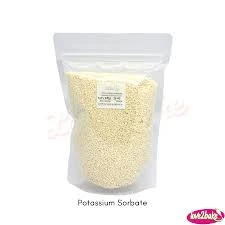
Iron Fertilizer - Boost Your Plant Growth with Essential Nutrients
The Benefits of Iron Fertilizer for Plant Health
Iron is an essential micronutrient for plant growth, playing a critical role in various physiological processes. Among the numerous fertilizers available, iron fertilizer has gained significant attention for its effectiveness in enhancing plant vitality and productivity. This article will explore the importance of iron fertilizer, its benefits, and how it can be effectively used in agricultural practices.
Iron is crucial for the synthesis of chlorophyll, the green pigment responsible for photosynthesis. A deficiency in iron can lead to chlorosis, a condition where leaves turn yellow, primarily in younger foliage, while the veins remain green. This not only affects the aesthetic appeal of plants but also significantly hinders their ability to photosynthesize efficiently, ultimately reducing crop yields. By applying iron fertilizer, farmers can mitigate these symptoms, ensuring that plants remain healthy and productive.
One of the most significant benefits of iron fertilizer is its ability to promote root development
. A robust root system is crucial for water and nutrient absorption. When plants have adequate iron levels, they are better equipped to develop extensive root networks, which improves their overall resilience to environmental stressors such as drought and poor soil conditions. This is particularly important in regions with less-than-ideal growing conditions, where the availability of nutrients may vary.iron fertilizer

Iron fertilizers come in various forms, including chelated iron, ferrous sulfate, and iron oxide. Chelated iron is often preferred due to its enhanced solubility, allowing for better absorption by plant roots. Furthermore, chelated forms are less likely to react with other soil components, ensuring that the iron remains available to plants over a longer period. For growers looking to correct iron deficiency in their crops, using chelated iron fertilizers is often the most effective solution.
In addition to improving chlorophyll production and root development, iron fertilizers also play a significant role in stimulating enzyme activity within plants. Enzymes are crucial for metabolic processes that convert nutrients into energy and support overall plant health. By ensuring adequate iron availability, farmers can enhance the enzymatic functions within crops, which can lead to improved growth rates and higher yields.
Applying iron fertilizer must be done thoughtfully, as over-application can lead to toxicity and negatively impact plant health. Soil testing is advisable to determine the existing levels of iron and other nutrients before applying fertilizers. This approach ensures a balanced nutrient supply, promoting sustainable agricultural practices.
In conclusion, iron fertilizer serves as a vital tool for promoting plant health and productivity. By effectively addressing iron deficiencies, farmers can enhance chlorophyll production, support root development, and stimulate essential enzyme activity. Whether using chelated forms or other types of iron fertilizers, the key lies in understanding the specific needs of the crops and the existing soil conditions. With proper application, iron fertilizer can significantly contribute to healthier plants and more abundant harvests, ultimately benefiting both farmers and consumers alike.
-
The Safety Challenges of Ammonium Nitrate FertilizerNewsJun.26,2025
-
The Critical Role of Mining ChemicalsNewsJun.26,2025
-
Shelf Life of Glacial Acetic Acid Food GradeNewsJun.26,2025
-
Enhancing PVC Longevity with 1,2,3-Benzotriazole InnovationsNewsJun.26,2025
-
China’s Dominance in Food Additive ProductionNewsJun.26,2025
-
Can Aluminum Hydroxide Replace More Toxic Alternatives?NewsJun.26,2025
-
PE and PP Plastics with Benzotriazole AdditivesNewsJun.12,2025
Hebei Tenger Chemical Technology Co., Ltd. focuses on the chemical industry and is committed to the export service of chemical raw materials.
-

view more DiethanolisopropanolamineIn the ever-growing field of chemical solutions, diethanolisopropanolamine (DEIPA) stands out as a versatile and important compound. Due to its unique chemical structure and properties, DEIPA is of interest to various industries including construction, personal care, and agriculture. -

view more TriisopropanolamineTriisopropanolamine (TIPA) alkanol amine substance, is a kind of alcohol amine compound with amino and alcohol hydroxyl, and because of its molecules contains both amino and hydroxyl. -

view more Tetramethyl Thiuram DisulfideTetramethyl thiuram disulfide, also known as TMTD, is a white to light-yellow powder with a distinct sulfur-like odor. It is soluble in organic solvents such as benzene, acetone, and ethyl acetate, making it highly versatile for use in different formulations. TMTD is known for its excellent vulcanization acceleration properties, which makes it a key ingredient in the production of rubber products. Additionally, it acts as an effective fungicide and bactericide, making it valuable in agricultural applications. Its high purity and stability ensure consistent performance, making it a preferred choice for manufacturers across various industries.











